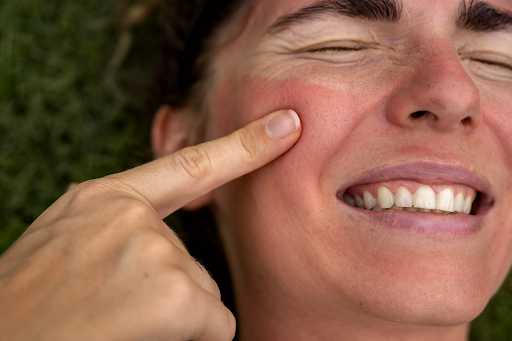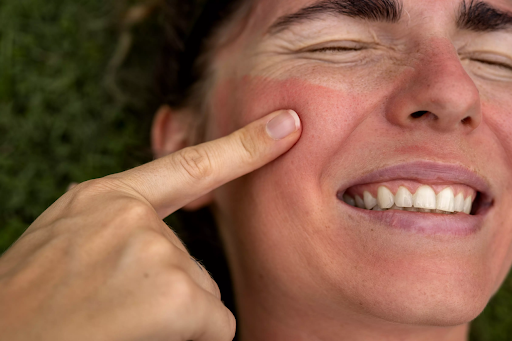Do you spend a lot of time outdoors? Whether you’re playing sports, gardening, or simply soaking up the sunshine, it’s crucial to protect your skin and eyes from harmful UV rays. Enjoying the outdoors is fantastic, but it’s crucial to understand the risks and take steps to safeguard your skin and eyes. Just like the best gift to our aging parents is ensuring they can stay in their homes with proper care, the best gift you can give yourself is to protect your body from harmful UV exposure. Let’s dive into the practical steps you can take to stay safe under the sun.

What is UV Ray?
UV rays come in three types: UVA, UVB, and UVC. While UVC rays are absorbed by the Earth’s ozone layer and don’t reach us, UVA and UVB rays can be harmful.
- UVA rays have longer wavelengths and penetrate deep into the skin, increasing the risk of macular degeneration and other eye issues.
- UVB rays have shorter wavelengths, mostly affecting the cornea and lens, potentially leading to photokeratitis and cataracts.
What Do UV Do to Us?
Spending time outdoors is wonderful, but it’s important to be aware of the risks associated with UV radiation. Protecting yourself can help prevent serious health issues like skin cancer, premature aging, eye damage, and even immune system suppression. Here’s what you need to know:
Premature Aging and Skin Damage
UV rays don’t just increase the risk of cancer; they also lead to other skin issues like actinic keratoses and premature aging.
- Actinic Keratoses: These are rough, reddish skin growths that appear on sun-exposed areas like the face, hands, and neck. While premalignant, they can be a precursor to squamous cell carcinoma. If you notice any, seek medical attention promptly.
- Premature Aging: Chronic sun exposure can make your skin thick, wrinkled, and leathery, the percentage of sun making people aging is up to 90%. The good news is that with proper protection, most of this damage can be avoided.
Cataracts and Other Eye Damage
Your eyes are as vulnerable as your skin to UV damage. Cataracts, which cloud the lens of the eye, can lead to blindness if untreated. UV radiation significantly increases the risk of developing cataracts, which affect millions of Americans and incur high medical costs annually. Other UV-induced eye problems include:
- Pterygium: A tissue growth that can obstruct vision.
- Macular Degeneration: Deterioration of the retina, where vision is sharpest.
- Skin Cancer Around the Eyes: Increased risk due to UV exposure. Protect your eyes with csunglasses that offer 99 to 100% UV protection. If you wear glasses or contact lenses, a pair of clip-on sunglasses also provide UV shielding.
Immune System Suppression
UV radiation can weaken your immune system. Overexposure impairs the skin’s ability to defend against infections and cancers, making it harder for your body to protect itself.
Protecting Your Eyes from UV Exposure
Exposure to UV rays can harm your eyes, increasing the risk of diseases like cataracts and macular degeneration. So you’d better have a good protection of your eyes, to protect your eyes:
-
Shield Your Skin with Sunscreen
Using sunscreen with an SPF of at least 30 is a must. It helps block harmful UV rays and protects your skin from burns and damage. Apply it generously and reapply every two hours, especially if you’re swimming or sweating.
-
Dress Smartly for the Sun
Wearing protective clothing can make a big difference. Opt for long sleeves, wide-brimmed hats, and sunglasses with UV protection. Clothes with tight weaves or special UV-blocking fabrics offer the best defense.
-
Stay Hydrated
Drinking plenty of water keeps you hydrated and helps your body manage the heat. Hydration is also essential for overall skin health, helping to maintain elasticity and protect against sun damage.
-
Use Natural Methods
Natural remedies can also provide sun protection. Foods rich in antioxidants, like fruits and vegetables, help protect your skin from the inside out. Drinking green tea, which is packed with antioxidants, can enhance your skin’s defense against UV rays.
-
Protect Your Eyes
Your eyes are just as vulnerable to UV damage as your skin. Wear sunglasses that block 100% of UVA and UVB rays to prevent conditions like cataracts and macular degeneration. Pairing sunglasses with a wide-brimmed hat offers even more protection.
-
Regular Eye Check-ups
Regular eye exams are crucial, especially if you spend a lot of time outdoors. An ophthalmologist can detect early signs of UV damage and help you take steps to protect your vision.
-
Seasonal Protection
UV exposure varies with the seasons, but it never disappears. In summer, UV rays are stronger, but winter sports enthusiasts should also beware of UV exposure from snow and ice. Year-round protection is key, so keep those sunglasses and hats handy, whatever the weather.
-
Choose the Right Sunglasses
When picking sunglasses, make sure they offer good UV protection. Look for lenses that block 100% of UVA and UVB rays. Polarized lenses can reduce glare, making them perfect for outdoor activities.
Conclusion
Protecting yourself from UV rays is essential for maintaining healthy skin and eyes. From using sunscreen and wearing protective clothing to staying hydrated and choosing the right sunglasses, these tips will help you enjoy the outdoors safely. Remember, regular check-ups and a little daily care go a long way in keeping your vision and skin in top shape. Stay sun smart, and enjoy your time outdoors with peace of mind.
Interesting Related Article: “Skincare Tips for Healthy and glowing skin“









